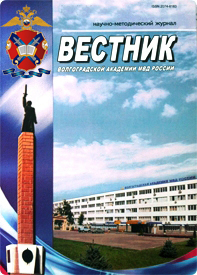Modern ideas of the uniqueness and objectivity of the meaning of the text of the legal norm have firm roots of a politico-pragmatic nature, dating back to the time of the Great French Revolution. Today, these ideas are widely used both in legal science and in practice. But the proposed ways to limit the freedom to identify more than one meaning of the text of a legal norm look more like a desired, but not a valid state of things. To speak about the existence of goals, intentions, and will of the creator of the rule of law is permissible. However, the procedure for determining goals, intentions, and will of the creator of the rule of law contains a large number of potential problems that do not allow us to identify the uniqueness and objectivity of the meaning of the language of law. The author shares the desire for the uniqueness of meaning, however, following the distinction between the desirable and the real, does not consider it possible to agree that the uniqueness of the meaning of the language of law takes place in actual reality. At the moment there is no such method of interpretation of law that would allow to establish the uniqueness of the meaning of the object language of law.
the system of law, the system of legislation, the sign of law, the meaning of law, the meaning of law, the referent of law, the designatum of law, the denotat of law, the form of law, the contents of law, the language of law, the object language of law, the object language of law
1. Popov V. V. Sootnoshenie prava i zakonodatel'stva: predposylki rassmotreniya cherez prizmu semioticheskogo treugol'nika // Vestnik Volgogradskoy akademii MVD Rossii. 2017. № 2.
2. Troper M. Svoboda tolkovaniya u konstitucionnogo sud'i // Rossiyskiy ezhegodnik teorii prava. 2011. № 4.
3. Hart H. L. A. The Concept of Law. Oxford, 1994.
4. Dworkin R. Taking rights seriously. Cambridge, MA: Harvard University Press, 1977. Pp. XV, 293.
5. Galligan D. J. Discretionary Powers. A Legal Study of Official Discretion. Oxford, 1986.
6. Lustgarten L. The Governance of Police. London, 1986.
7. Zor'kin V. D. Precedentnyy harakter resheniy Konstitucionnogo Suda Rossiyskoy Federacii. Dostup iz sprav.-pravovoy sistemy «Konsul'tantPlyus».
8. Troper M. Pravo i ego interpretacii // Rossiyskiy ezhegodnik teorii prava. 2011. № 4.
9. Montesk'e Sh. L. O duhe zakonov. M., 1999.
10. Pigolkin A. S. Tolkovanie norm prava i pravotvorchestvo: problemy sootnosheniya // Zakon: sozdanie i tolkovanie / pod red. A. S. Pigolkina. M., 1998.
11. Guk P. A. Sudebnoe tolkovanie norm prava // Zhurnal rossiyskogo prava. 2016. № 8. Dostup iz sprav.-pravovoy sistemy «Konsul'tantPlyus».
12. Bayteeva M. V. Sovremennoe pravoponimanie: konceptual'nye podhody // Rossiyskiy ezhegodnik teorii prava. 2011. № 4.
13. Ealing London Borough Council v Race Relation Board (1972) AC 342 at 360.
14. Bzhezinskiy Z. Velikaya shahmatnaya doska. Gospodstvo Ameriki i ego geostrategicheskie imperativy. M., 2000.
15. Magor and St Mellons RDS v Newport Corporation (1952) AC 189.
16. 418 HL Official Report (5th Series) col 65 (9 March 1981).
17. Dworkin R., Law’s Empire. Cambridge, Massachusets / London, England: The Belknap Press of Harvard University Press, 1986. XIV. 471 p.
18. Brink D. O. Legal Interpretation, Objectivity, and Morality // Objectivity in Law and Morals, edited by Brian Leiter. Cambridge: Cambridge University Press, 2001. 354 p.
19. Troper M. Kel'zen, teoriya tolkovaniya i struktura pravovogo poryadka // Rossiyskiy ezhegodnik teorii prava. 2011. № 4.









